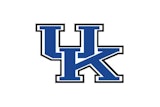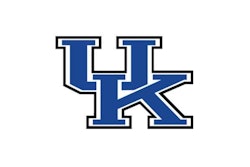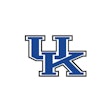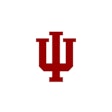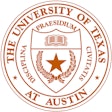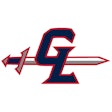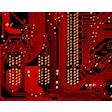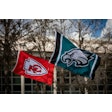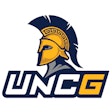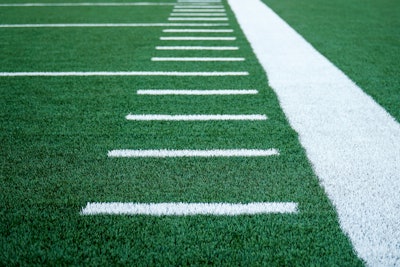
The NCAA this season has for the first time allowed coach-to-player communications through football helmets, but now some are concerned that those communications are occurring on unencrypted frequencies.
According to ESPN, Texas Tech athletic director Kirby Hocutt raised the issue during a call with Big 12 athletic directors Tuesday, after learning the Red Raiders' helmet communications were unencrypted and accessible to anyone with a scanner and knowledge of how to locate the frequencies.
The Big 12 has since instructed the 10 schools playing games this weekend to send their helmet communication devices back to GSC, the provider of all 68 Power 4 teams this year, for a software update that would provide encryption.
"We've got to have a game whose integrity is not questionable in any way on a Saturday afternoon," said Hocutt. "We owe it to the 120 young men on our football team to ensure that happens, that it's a game of fair competition and the same set of rules are enforced."
Texas Tech has since requested a report from the Big 12 on its recent games against TCU and Baylor to ensure that communications during those games were not compromised.
ESPN reported that a frequency coordinator made the discovery in late September while setting up for the Texas A&M-Arkansas game at AT&T Stadium. The coordinator then notified the SEC, as well as Baylor and TCU, which forwarded the information on to their conference.
"We have been aware of the issue and have stayed in communication with GSC and our colleague conferences as well as our schools," the SEC said Wednesday in a statement. "We are not aware of any instances of the system being compromised during games. GSC has developed an update to resolve the issue and we have made our schools aware of their ability to update their systems at a time of their choosing."
The Big 12 sent a memo, obtained by ESPN, to ADs and coaches acknowledging that someone with intimate knowledge of frequency scanners and the GSC system could hear communications between coaches and players.
"GSC and the frequency experts consulted shared that the risk of someone's ability to access this communication was very low," Big 12 chief football and competition officer Scott Draper wrote in the memo. "The four conferences met weekly to discuss the next steps and each chose the same path forward, to inform the head equipment managers of what we knew. As an interim step, we changed frequencies while the software update from GSC was complete. In hindsight, the conference should've shared this information with you."
While the flaw in the system is definitely a concern, it doesn't give away a team's entire offense or defense, as the system is only used to transmit short play calls to one player on offense (usually a quarterback) and defense (usually a linebacker).
"There's no real advantage," one Big 12 chief of staff argued. "One, you're speaking a different language. Two, if you think you'd be able to enact in real time what they say and try to do it on the field, you're delusional. You're just being your stereotypical paranoid football coach. You can't relay it to the kids fast enough."














